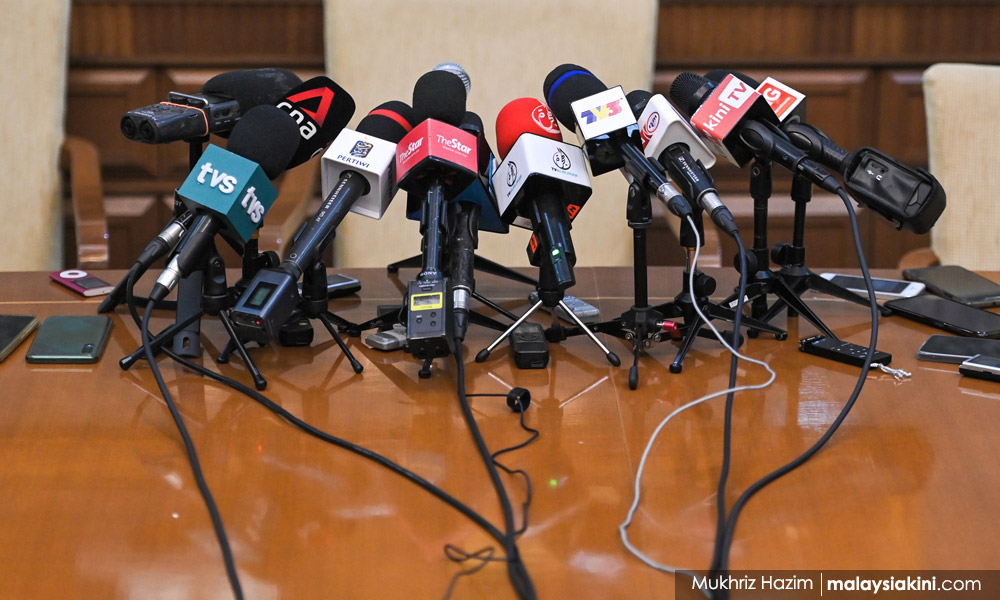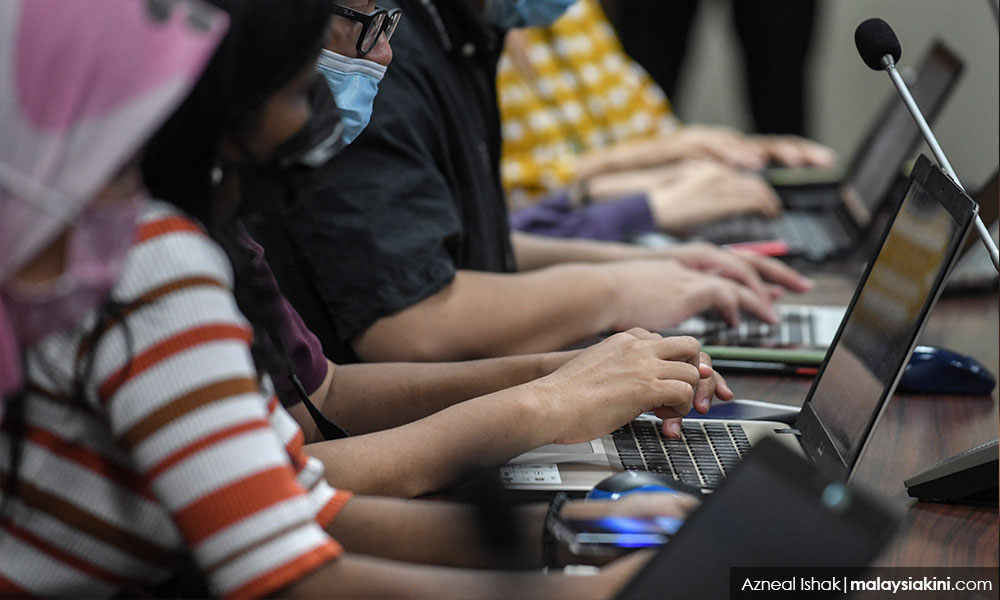The ongoing gutter politics reminds me of Howard Beale’s (Peter Finch) visceral rage in a 1976 classic, “Network”.
“I don’t have to tell you things are bad,” the fictional news anchor bellowed.
“Everybody knows things are bad… I don’t want you to protest. I don’t want you to riot - I don’t want you to write to your congressman because I wouldn’t know what to tell you to write…
“All I know is that first, you’ve got to get mad… I want you to get up right now and go to the window. Open it and stick your head out, and yell, ‘I’m mad as hell, and I’m not going to take this anymore’.”
Yes, we will not take any more hogwash from the zealots. Journalists should start to put a sock in it. But I do acknowledge it is not easy.
Journalists are ensnared in a symbiotic relationship with politicians. They rely on politicians to drive the news and politicians use journalists to push their agenda.
The question is who is leading (or misleading) who. And all this at the cost of uncovering what truly goes on behind the facade of protecting the sanctity of Allah or “governing for the people”.
An imperfect profession
Evidently, a culture of hypocrisy and backstabbing has seeped into the “unity government”.
Opportunistic wannabes continue to make the headlines - because journalists allow them to. Giving space to the politically loud and ludicrous without holding them to account will just drag the national conversation deeper into the sewer.

It is said we get the media we deserve - a media that serves those in power instead of those with weaker voices in the public sphere. Hence, the lopsided news space given to political brinkmanship, party infighting, personality clashes, racial campaigns, and belligerent boycotts.
Journalism is, indeed, an imperfect profession. “Balance” in news perspectives is more theoretical than real. In the words of Howard Beale, “cleansing moments of clarity” in the news are rather rare.
Continual follow-ups on a race-tainted religious issue, when journalists could have plugged it, will become the reality of the insane instigators and their minions. See, for instance, the polarised reactions to Donald Trump’s MAGA Christian nationalists and our self-proclaimed defenders of Islam.
It comes down to this: journalists need to break away from being (mis)led by political schemers to refocus on issues that have been under-reported despite the scope for in-depth research and accessibility to different information sources on the internet.
According to a start-up site, New Naratif, issues that matter to Malaysians are the rising costs of living, soaring food prices, jobs and wage disparity, quality of education, and how racial politics and systemic corruption will impact daily lives.
On a recent trip home, I was struck by the rising price of groceries, price gouging, and unhygienic conditions in the wet market, restaurants, and hawker centres. These may not be headliners. But they are necessarily intertwined with local and federal politics.
Thinking about shelter, I think about housing affordability for first-time buyers, racial policy in housing development and property ownership, rising rental costs, and inequitable access to housing loans.
Thinking about our sense of community, I think of the breakdown in the family system, social isolation due to gentrification and gated communities, racial exclusion in the civil service, and racial segregation in schools and housing complexes.
And, thinking about employment, I am perturbed by our form of “modern slavery”, the welfare of underpaid and overworked domestic helpers, security guards, and migrant workers in the plantations and construction sites.
Many untold stories and issues lurk underneath those human faces. The sociopolitical and economic connections are plain to see - if journalists break out of their dominant news frame.
No hope from the current lot
We elect politicians who make laws and rules that affect nearly every area of our lives. From the air we breathe to the unchecked urban sprawl and the unsustainable number of vehicles added to the roads annually, we turn to the media, our watchdog, to question those in power and what they can or will not do.

Stories are more meaningful when they chart alternative pathways to work out plausible (re)solutions to these persistent issues. This leads us back to the journalists’ task of holding political leaders to account.
Many of our current political leaders are past retirement age with perhaps a decade or more before they turn senile. What stories will they leave behind? What is the legacy of former prime ministers?
Dr Mahathir Mohamad’s administration was stained by corruption, cronyism, media clampdowns, racial polarisation, political plots, and persecution.
Najib’s administration was stained by the same - add in sexual scandals, embezzlement, missing persons, political murders, and imprisonment. Najib’s legacy is as tainted as Mahathir’s.
I recall that only one who had left a legacy of fair-mindedness and compassion - Tunku Abdul Rahman - who, throughout his retirement, wrote a weekly column for The Star until the paper was suspended for about six months in 1987 by Mahathir.
Can the current leaders, based on their politics and the choices they make today, honestly claim to have done what was good for the rakyat? Who will we remember as the reformist leader who tore down the walls that have long divided the people by race, religion, and class?
None among the current lot.
That will be the day when a leader may rise from the minority of progressive bumiputera thinkers, some educated overseas and, presumably, exposed to the culture of good governance.
Failing which, we would soon be yelling from our windows and hallways. - Mkini
ERIC LOO is a former journalist and educator in Australia and a journalism trainer in parts of Asia.
The views expressed here are those of the author/contributor and do not necessarily represent the views of MMKtT.




No comments:
Post a Comment
Note: Only a member of this blog may post a comment.